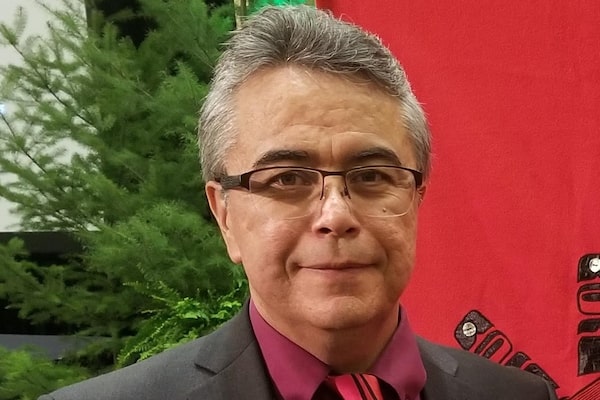
Tribal Chief Tyrone McNeil is the chairman of the Indigenous Advisory Committee of the Canada Energy Regulator.The Canadian Press
A new Indigenous Advisory Committee, part of the Canada Energy Regulator, will raise the bar for how Indigenous rights are considered in relation to energy projects, the committee chairman says.
The committee was set up in August, 2020, under legislation that created the Canada Energy Regulator, formerly the National Energy Board. The IAC has a mandate to help shape the regulator’s approach based on standards including those set out in the UN Declaration on the Rights of Indigenous Peoples, chairman Tyrone McNeil said.
“If any proponent is considering something, they’re going to be fully aware of that bar – knowing that if they come in under the bar, it’s not going to be considered,” said Mr. McNeil, a Sto:lo tribal chief and a member of the Seabird Island Band in B.C.
Mr. McNeil is one of nine members of the IAC, which was implemented as part of an overhaul meant to improve relations between regulatory agencies and Indigenous groups.
Industry opposed the new legislation, federal Bill C-69, saying it would drive away investors and make it more difficult to get approval for new projects, but it became law in June, 2019.
The advisory committee does not have the authority to make decisions, but CER says it will be more than window-dressing. Terms of reference were released this past Thursday.
“Now we have a really strong advisory committee as part of our governance,” CER board chair Cassie Doyle said.
“So from the very get-go, on anything, from a strategic level, including our strategic plan, we have nine amazing advisers. We see this as a partnership between that [committee] and the board of directors,” Ms. Doyle said.
In practical terms, that will result in Indigenous people being involved much sooner in the process, said Gitane De Silva, chief executive officer with the regulator.
“So, as opposed to waiting until we have something fully thought out and then taking it to communities, we are using the committee as an opportunity to incorporate Indigenous world views and perspectives as we develop a policy or process,” Ms. De Silva said.
“And that allows us hopefully to remove some of the blind spots that we have had in the past.”
To date, disagreements over how Indigenous concerns and perspectives are taken into account – or, allegedly, dismissed or ignored – have often wound up in court. In August, 2018, for example, the Federal Court of Appeal quashed the federal government’s approval of the proposed Trans Mountain expansion for reasons that included inadequate consultation with Indigenous groups.
Ottawa approved the project in June, 2019, after another round of consultations. The project is owned by the federal government, which in 2018 bought it from former proponent Kinder Morgan.
In an e-mail Friday, Trans Mountain Corp. chief executive officer Ian Anderson called the regulator’s Indigenous Advisory Committee “a welcome step forward,” saying Trans Mountain’s approach to Indigenous engagement is consistent with the new committee’s mandate.
Representatives for LNG Canada, a Shell-led joint venture that is building an LNG-export facility in Kitimat, B.C., and the Canadian Association of Petroleum Producers, which represents oil and gas producers, also welcomed the committee.
Angel Ransom, director of operations at the First Nations Major Projects Coalition, said groups like the IAC may help build trust and provide First Nations with a better understanding of the positive and negative impacts of proposed developments.
But she noted that the Canada Energy Regulator’s IAC has limitations because it is not a decision-making body.
Your time is valuable. Have the Top Business Headlines newsletter conveniently delivered to your inbox in the morning or evening. Sign up today.
 Wendy Stueck
Wendy Stueck